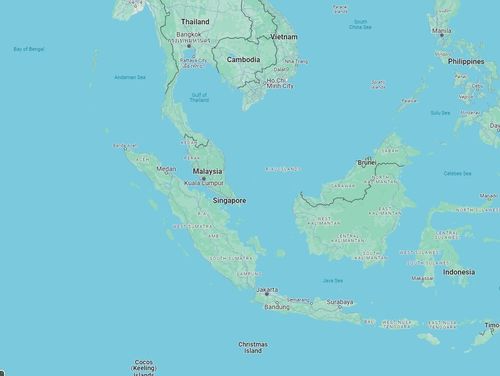Singapore to implement SAF mandate starting in 2026

SOURCE: Google Maps
February 28, 2024
BY Erin Voegele
The government of Singapore has unveiled an action plan that aims to decarbonize the country’s aviation sector. The program will, in part, require flights departing Singapore to be fueled with sustainable aviation fuel (SAF) starting in 2026.
The Singapore Sustainable Air Hub Blueprint was launched on Feb. 19. It was developed by the Civil Aviation Authority of Singapore in consultation with industry and other stakeholders and aims to decarbonize the country’s aviation sector. Under the blueprint, CAAS will work with aviation stakeholders to reduce domestic aviation emissions from airport operations by 20% by 2030 when compared to a 2019 baseline. The program aims to achieve net-zero domestic and international emissions by 2050.
The blueprint contains numerous specific initiatives, including those related to SAF. As part of the program, CAAS will undertake several initiatives to build a SAF ecosystem and support the use of SAF in Singapore. This includes the required use of SAF in flights departing Singapore starting in 2026. The requirement is expected to phase in starting at 1% in 2026, increasing to 3-5% in 2030, subject to global developments and the wider availability and adoption of SAF. CAAS will also introduce a SAF levy for the purchase of SAF to achieve the uplift target. The funds collected through the SAF levy will be used to purchase SAF. According to the CAAS, the SAF levy will not change, even if the actual SAF price differs from what is projected. Rather, the actual uplift volume of SAF will be adjusted based on the predetermined SAF levy and prevailing SAF price. The agency said the level will vary based on factors such as distance travelled and class of travel. Current estimates indicate that a levy to support 1% SAF uplift in 2026 could increase ticket price for an economy class passenger on a direct flight from Singapore to Bangkok, Tokyo and London by approximately S$3 ($2.23), S$6 and S$16, respectively.
Advertisement
Additional information is available on the CAAS website.
Advertisement
Related Stories
The U.S. EPA on July 8 hosted virtual public hearing to gather input on the agency’s recently released proposed rule to set 2026 and 2027 RFS RVOs. Members of the biofuel industry were among those to offer testimony during the event.
The U.S. exported 31,160.5 metric tons of biodiesel and biodiesel blends of B30 and greater in May, according to data released by the USDA Foreign Agricultural Service on July 3. Biodiesel imports were 2,226.2 metric tons for the month.
The USDA’s Risk Management Agency is implementing multiple changes to the Camelina pilot insurance program for the 2026 and succeeding crop years. The changes will expand coverage options and provide greater flexibility for producers.
EcoCeres Inc. has signed a multi-year agreement to supply British Airways with sustainable aviation fuel (SAF). The fuel will be produced from 100% waste-based biomass feedstock, such as used cooking oil (UCO).
President Trump on July 4 signed the “One Big Beautiful Bill Act.” The legislation extends and updates the 45Z credit and revives a tax credit benefiting small biodiesel producers but repeals several other bioenergy-related tax incentives.
Upcoming Events










